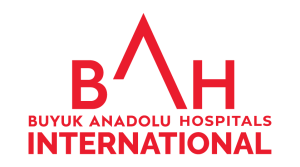What Is Sleep Apnea Surgery?
Sleep apnea surgery is a set of surgical techniques designed to treat obstructive sleep apnea (OSA) — a condition where breathing repeatedly stops during sleep due to upper airway blockage.
The aim of surgery is to widen and stabilize the airway, reduce snoring, and improve oxygen flow during sleep.
Depending on the patient’s anatomy, the procedure may involve the soft palate, uvula, tonsils, tongue base, or nasal passages.
At Büyük Anadolu Hospitals, ENT surgeons perform personalized surgical plans to permanently improve breathing and sleep quality.

Who Is a Good Candidate for Sleep Apnea Surgery?
You may be a candidate if you have:
-
Diagnosed obstructive sleep apnea confirmed by a sleep study (polysomnography)
-
Loud snoring, daytime fatigue, or morning headaches
-
Enlarged tonsils, adenoids, or uvula obstructing the airway
-
Failure to tolerate or benefit from CPAP (Continuous Positive Airway Pressure) therapy
-
Structural abnormalities of the nose or throat contributing to obstruction
Surgery is recommended after a comprehensive ENT and sleep evaluation to determine the site and severity of airway collapse.
Step-by-Step Procedure Process (Sleep Apnea Surgery)
Preoperative Assessment: ENT examination, sleep study report review, and imaging of nasal/oral airway.
Anesthesia: General anesthesia.
Surgery Options (Depending on Patient’s Anatomy):
-
UPPP (Uvulopalatopharyngoplasty): Removal or reshaping of the uvula, soft palate, and excess throat tissue.
-
Tonsillectomy / Adenoidectomy: If enlarged tonsils or adenoids cause obstruction.
-
Tongue base reduction (Coblation or Laser): Reduces tissue bulk behind the tongue.
-
Nasal surgery (Septoplasty or Turbinate reduction): Improves airflow through the nose.
Duration: 1–3 hours depending on combined techniques.
Hospital Stay: 1–2 nights for observation.
Follow-Up: Regular postoperative visits and repeat sleep study after 6–12 weeks if necessary.

Possible Risks and Preventive Measures
| Possible Risks | Our Preventive Measures |
|---|---|
| Bleeding or infection | Controlled with meticulous technique and antibiotic therapy. |
| Swelling or temporary difficulty swallowing | Monitored postoperatively; anti-inflammatory medication given. |
| Voice or taste changes (rare) | Careful tissue preservation during surgery. |
| Airway dryness or discomfort | Humidified air and saline sprays. |
| Recurrence of symptoms | Comprehensive evaluation to select the correct surgical combination. |
Cost of Sleep Apnea Surgery in Turkey
The cost of sleep apnea surgery in Turkey generally ranges between €2,800 – €4,500, depending on the complexity and number of areas treated (palate, tongue, tonsils, or nose).
| Country | Average Cost (EUR) |
|---|---|
| Turkey | €2,800 – €4,500 |
| United Kingdom | €7,000 – €9,000 |
| Germany | €6,000 – €8,000 |
| Spain | €5,000 – €7,000 |
| USA | €10,000 – €14,000 |
Consult Our Specialists About Sleep Apnea Treatment
Recovery and Aftercare
Mild throat discomfort and swelling are common for a few days.
Soft, cool foods and good hydration promote healing.
Avoid strenuous activity and heavy exercise for 2 weeks.
Snoring reduction and better sleep quality are usually noticeable within 2–4 weeks.
Final results are assessed after 6–8 weeks, sometimes confirmed with a follow-up sleep study.

Sleep Apnea Surgery Asked Questions (FAQ)
Mild to moderate throat discomfort is expected but well managed with medication.
Most patients return to work in 7–10 days, depending on the type of procedure performed.
In most cases, snoring is significantly reduced or eliminated. Results depend on anatomy and surgical combination.
Yes, if necessary. Surgery often improves airway patency and reduces CPAP pressure requirements.
Usually 7–10 days after surgery, once swallowing and breathing are stable.
